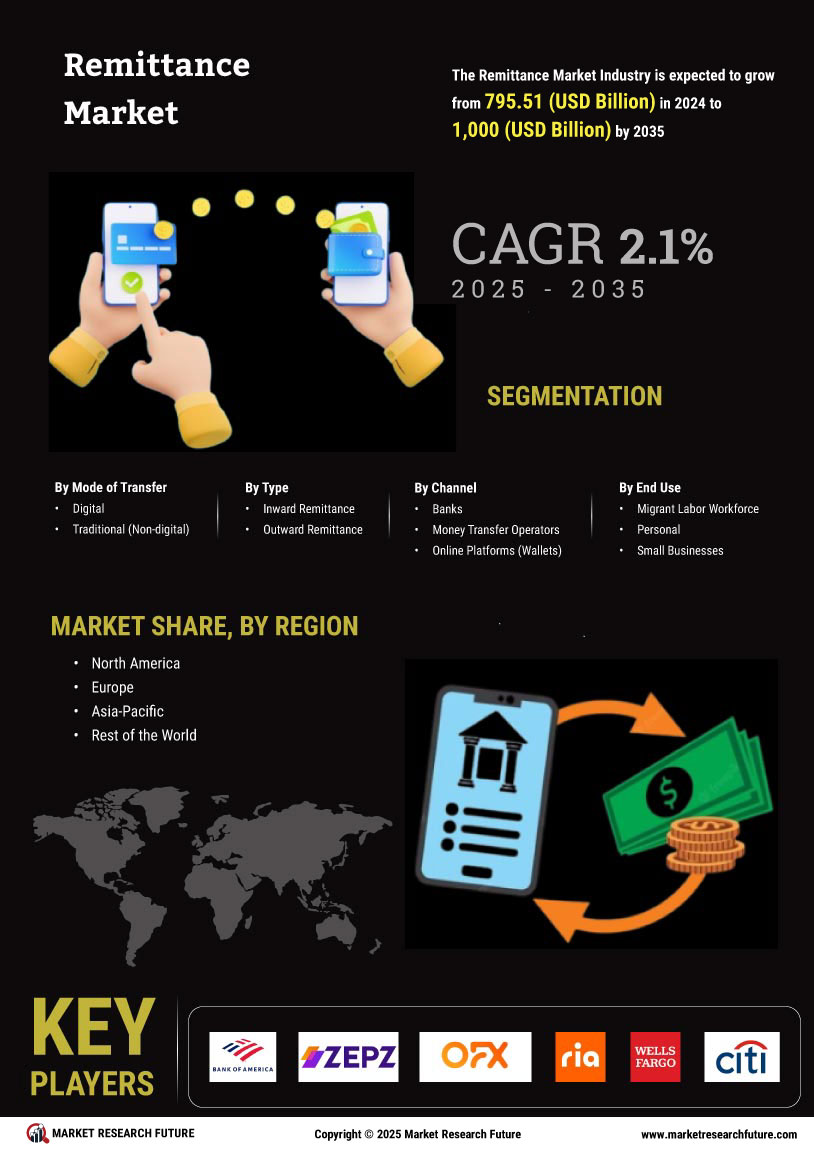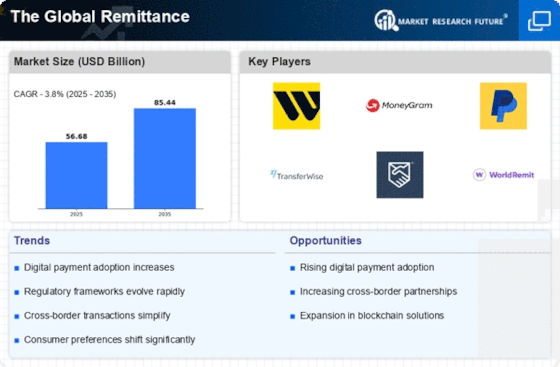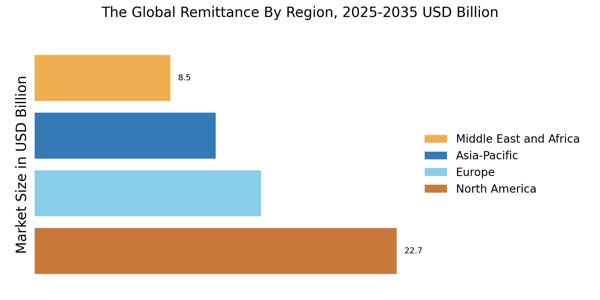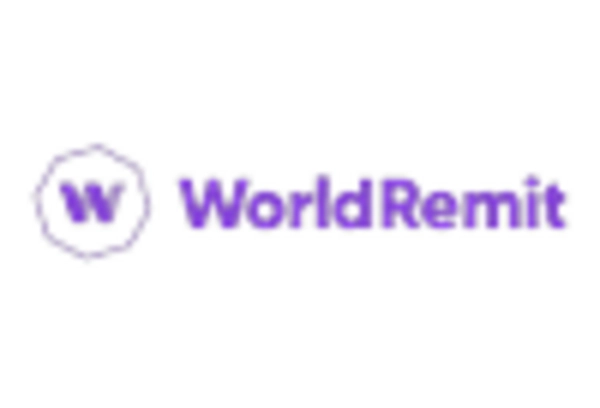Regulatory Frameworks
The regulatory frameworks governing the remittance sector are evolving, which could significantly impact The Global Remittance Industry. Governments are increasingly focusing on anti-money laundering (AML) and combating the financing of terrorism (CFT) regulations. In 2025, it is anticipated that stricter compliance measures will be implemented, affecting how remittance companies operate. While these regulations aim to enhance security and consumer protection, they may also impose additional costs on service providers. This could lead to a consolidation of smaller players in the market, as they struggle to meet compliance requirements. However, a well-regulated environment may also foster consumer trust, potentially increasing the volume of remittances sent through formal channels.
Economic Migration Trends
Economic migration trends are a significant driver of The Global Remittance Industry. As individuals seek better employment opportunities abroad, the flow of remittances to their home countries continues to rise. In 2025, it is projected that remittances will reach approximately 700 billion USD, reflecting the increasing reliance of developing economies on these funds. Countries with high emigration rates, such as India and Mexico, are expected to see substantial inflows, which can contribute to local economic development. This trend indicates that as long as economic disparities exist, the demand for remittance services will likely persist, thereby sustaining growth in the industry.
Technological Advancements
Technological advancements play a pivotal role in shaping The Global Remittance Industry. The proliferation of mobile banking and digital wallets has transformed how remittances are sent and received. In 2025, it is estimated that over 1.7 billion people globally remain unbanked, yet mobile technology offers a viable solution for these individuals. The integration of blockchain technology is also gaining traction, potentially reducing transaction costs and increasing transparency. As these technologies evolve, they may enhance the efficiency of cross-border transactions, thereby attracting more users to the remittance services. The ongoing digital transformation is likely to create a more inclusive financial ecosystem, which could further stimulate growth in the remittance sector.
Financial Inclusion Initiatives
Financial inclusion initiatives are increasingly influencing The Global Remittance Industry. Governments and organizations are recognizing the importance of integrating underserved populations into the financial system. In 2025, various initiatives aimed at promoting financial literacy and access to banking services are expected to gain momentum. These efforts may lead to a broader customer base for remittance services, as more individuals gain access to formal financial channels. Additionally, partnerships between remittance companies and local financial institutions could facilitate easier access to services for marginalized communities. As financial inclusion progresses, it is likely to enhance the overall volume of remittances, thereby driving growth in the industry.
Consumer Preferences for Speed and Convenience
Consumer preferences for speed and convenience are reshaping The Global Remittance Industry. In an increasingly fast-paced world, individuals are seeking quicker and more efficient ways to send money across borders. The demand for instant remittance services is on the rise, with many consumers willing to pay a premium for immediate transactions. In 2025, it is estimated that nearly 60% of remittance transactions will be completed within minutes, reflecting a shift towards real-time services. This trend is likely to compel remittance providers to innovate and enhance their service offerings, ensuring they meet the evolving expectations of consumers. As a result, companies that prioritize speed and user experience may gain a competitive edge in the market.

















